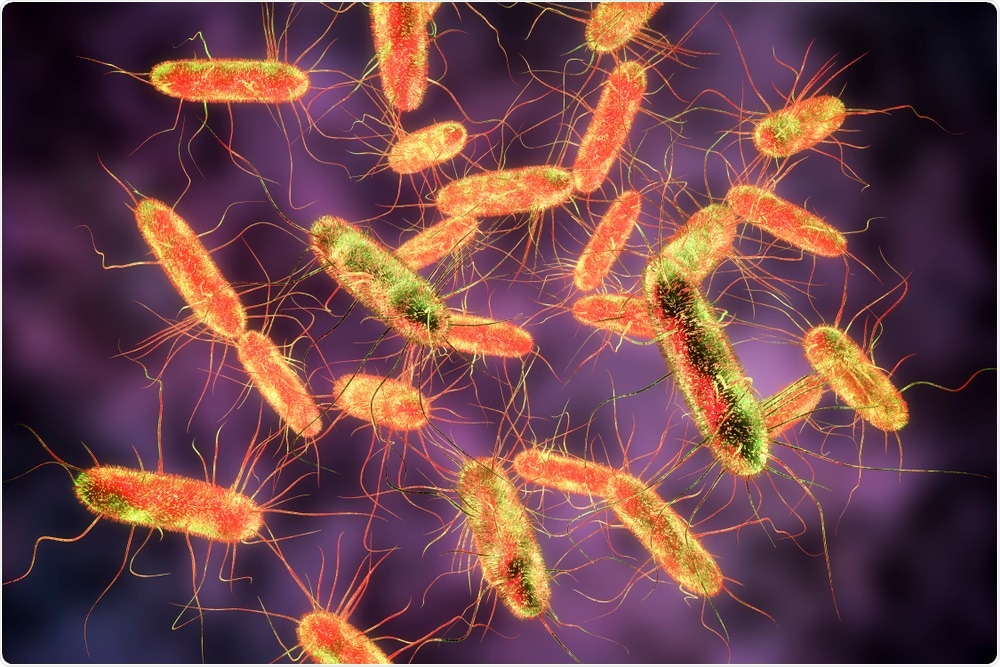Mice study has revealed a formerly unknown interaction between an immune cell protein and molecules extracted from dietary fiber. This immune cell protein triggers protection against the infection caused by Salmonella bacteria.

Image Credit: Kateryna Kon/Shutterstock.com
Hitoshi Tsugawa from Keio University School of Medicine in Tokyo, Japan, and his collaborators have presented their findings in an article published in the open-access PLOS Biology journal on September 29th, 2020.
Earlier studies have demonstrated that the gut microbes break down the ingested fiber into molecules called short-chain fatty acids. Short-chain fatty acids seem to protect against pathogens, such as Salmonella, by controlling the activity of immune cells, including macrophages. But the mechanisms through which short-chain fatty acids communicate with immune cells continue to remain vague.
To gain a deeper understanding of the protective function of short-chain fatty acids, the team conducted a series of laboratory experiments. They initially fixed short-chain fatty acids to the surface of synthetic “nano-beads,” and revealed the small structures to the cellular contents that have macrophage features to establish which types of proteins in the cells actually interacted with the fatty acids.
This process showed that short-chain fatty acids can attach to a certain protein known as apoptosis-associated speck-like protein (ASC)—a formerly unknown interaction. ASC is part of the supposed inflammasome complex, a protein structure that helps trigger the inflammatory response to inhibit pathogens.
Additional experiments in macrophages demonstrated that short-chain fatty acids guard against Salmonella infection by attaching to ASC and thus triggering the activation of inflammasome.
The team verified and extended their discoveries to mice experiments. When mice infected by Salmonella were fed with short-chain fatty acids, or with their dietary fiber precursors, the fatty acids attached to ASC stimulated the activation of inflammasome and extended the survival of the mice.
These outcomes shed new light on the effects of dietary fiber on the immune system. Additional studies will be required to establish the relevance of these findings to humans, and to study other possible effects of short-chain fatty acids on the immune system.
Source:
Journal reference:
Tsugawa, H., et al. (2020) Short-chain fatty acids bind to apoptosis-associated speck-like protein to activate inflammasome complex to prevent Salmonella infection. PLOS Biology. doi.org/10.1371/journal.pbio.3000813.